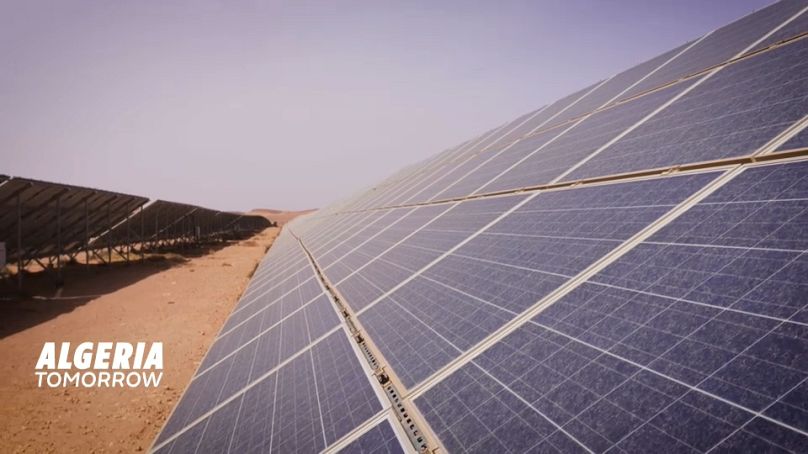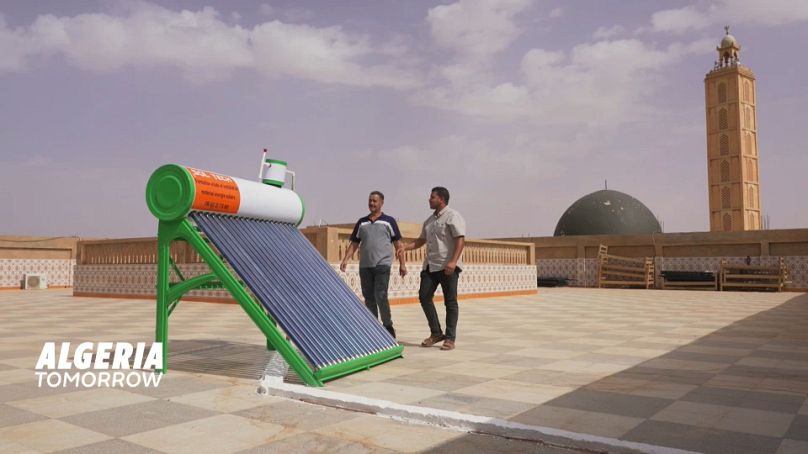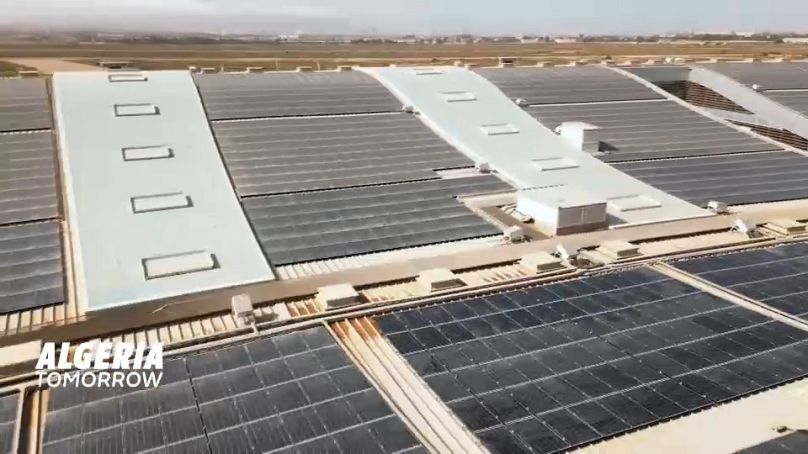Algeria
**Algeria is full of renewable energy promise. Host to significant hydrocarbon resources, the country also wants to play a role in the energy transition in Africa, mainly thanks to its photovoltaic potential. **
A land full of solar-powered promise
In the Sahara desert, in the Laghouat region, 240,000 solar panels make up the El Kheneg solar power plant, with a capacity of 60 MWp. The energy produced here, covers about one seventh of the region's needs.
Completed in 2016, the project is a prototype and part of the country's transition, aimed at preserving fossil fuel ressources and reduce greenhouse gas emissions.
Houari Mahi is the head of engineering of Sonelgaz Energies Renouvelables, he explains to Euronews Algeria's potential regarding solar energy.
"Algeria has 3,000 hours of sunshine per year, and in the case of Laghouat, it is estimated at 1,800 hours per year. This is enough to push us to invest in the construction of photovoltaic structures. We need to generate the same amounts of simple megawatts or kilowatt-hours with photovoltaic sources as we do with fossil fuels."
To diversify its energy mix, largely dominated by gas and oil, Algeria wants to achieve 15,000 MWp of solar energy by 2035. A call for tenders is underway to install solar power plants in several regions.
National scale Photovoltaic experiements
The region of Laghouat is at the forefront of this conversion: solar kits have been distributed to remote villages and to nomadic populations.
In the town of Aine Madhi, headquarters of the Tariqa Tijaniyya, a Sufi brotherhood, here too the transition to renewable energy is underway. On the roof of the Koranic school, opposite the mosque, a solar water heater has just been installed.
Initiatives are also multiplying across the city: from solar powered petrol stations to solar powered street lights.
This technological integration is seen as a positive step in the right direction by many, including Mohamed Akmi, director of Soltech.
"People come to ask questions about the benefits of renewable energy. And they are moving in that direction. God willing, we will move from fossil fuels to renewable energy," he says.
And that is not all, in the North of Algeria lies Oran, the country's second largest city, and it's airport.
The airport's new terminal, with a capacity of 3.5 million passengers per year, is partially powered by more than 4,500 solar panels on the huge roof.
"This is a green terminal. The airport manager runs 11 airports in the west and southwest. We have a lot of sun here in Oran and in the southern airports there is even more sunshine. In the near future, we aim to equip them with renewable energy as well," says Nadjib Benchenane, director of the Ahmed Ben Bella Airport.
The possibilities fueled by green hydrogen
In Algiers, researchers are working on another promising lead, that of hydrogen, presented as an energy of the future.
Algeria has signed a partnership with Germany. The aim is to produce and then, maybe export the highly-demanded green hydrogen via the pipelines that run to Europe.
Pilot projects are being studied to produce green hydrogen while respecting the Saharan environment. Large-scale experimentation could begin as early as 2030.














01:04
Algeria suspends flights to Mali over airspace violations
00:40
Tebboune and Macron commit to enhancing bilateral cooperation between Algeria and France
Go to video
The Okwelians: Unlocking New Economic Paths for Cameroon [Business Africa]
Go to video
Algeria sentences writer Boualem Sansal in France-Morocco dispute
22:26
Boxer Imane Khelif says unbothered by gender talk ahead of 2028 Olympics
03:12
Outgoing IOC chief defends women boxers at centre of Paris gender row